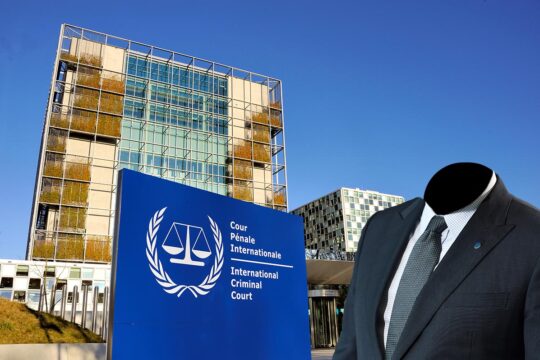Seeking a safe place to rest while covering the war in Lebanon, a group of journalists had gone to sleep in an area outside Hezbollah control, only to be awoken Friday by a deadly Israeli air strike.
The strike on Hasbaya at around 03:30 AM (1230 GMT) killed cameraman Ghassan Najjar and broadcast engineer Mohammad Reda, who worked for the pro-Iran, Beirut-based broadcaster Al Mayadeen, and video journalist Wissam Qassem of Hezbollah's al-Manar television.
"I woke up to the whistling sound of a missile and found my door burst open while thick smoke rose from the garden. I thought there was a fire," Sky News Arabia senior correspondent Darine El Helwe told AFP.
"I called one of my colleagues... He told me he was under the rubble," said Helwe, who has been covering the fighting between Israel-Hezbollah for more than a year.
She said the impact of the blast had thrown a broadcast vehicle from its parking spot.
AFP footage from the site showed small houses with red-tiled roofs badly damaged in the attacks, with the top of one residence completely smashed.
Rubble and twisted metal were strewn everywhere and at least two cars with the word "Press" across their bonnets had been reduced to dust-covered wrecks.
A house "where our colleagues were sleeping has been razed," Helwe said while driving back to Beirut.
Prime Minister Najib Mikati said the attack on sleeping reporters was deliberate and both he and Information Minister Ziad Makary labelled it a war crime.
"We were asleep in our rooms, without our bulletproof vests and helmets," Helwe said.
She said the reporters thought they would be safe in the Druze-majority town which was relatively far from the main flashpoints further south but close enough to the border to allow them to cover hostilities.
Hezbollah's strongholds are in Shiite-dominated parts of Lebanon, where it built its power base in a country rife with sectarian divisions.
- Microphone 'our only weapon' -
Since last month, seven Lebanese and Arab media outlets had been renting out a complex of 10 houses on the banks of the Hasbani river, after the reporters evacuated from a nearby village that came under fire.
Local official Naim Lahham told AFP it was "the first time that the town of Hasbaya was targeted" in a year of hostilities.
Muhamad Farhat, a reporter with local broadcaster al-Jadeed, posted a video of himself covered in dust, his eyes red and teary amid the wreckage of his room.
"The Israeli enemy targeted a place where journalists were staying," he said in the video, his bed buried under the rubble behind him.
In another video live on air, he said "the Israeli enemy... hunted down the press again today while they were in an area relatively far" from the clashes.
Mayadeen correspondent Fatima Ftouni, who made it out unscathed from the attack, wielded her microphone and her damaged press vest live on air, saying: "this is the only weapon we had".
"What you see before you is neither a ballistic missile nor artillery shells: it is a microphone and a vest," she said, holding up her equipment.
- 'Turn off the cameras' -
On September 23, Israel launched an intense air campaign in Lebanon and later launched ground incursions, following a year of limited cross-border clashes with Hezbollah over the Gaza war.
Since then, Israeli strikes in Lebanon have killed at least 1,580 people, according to an AFP tally of Lebanese health ministry figures, though the real number is likely to be higher due to gaps in the data.
Several journalists and media workers have also been killed.
Last October, Reuters journalist Issam Abdallah was killed by Israeli shellfire while he was covering southern Lebanon, while six other journalists were wounded including AFP's Dylan Collins and Christina Assi -- who had to have her right leg amputated.
Independent investigations by rights groups concluded, as did an AFP investigation, that the first strike that killed Abdallah and severely wounded Assi was most likely a tank round fired from Israel.
Last November, Israeli bombardment killed Al-Mayadeen correspondent Farah Omar and cameraman Rabih Maamari, the channel said.
Lebanese rights group said five more journalists and photographers working for local media had been killed in Israeli strikes on the country's south and Beirut's southern suburbs.
"Israel has previously targeted our colleagues in the field... but we were asleep," Helwe said.
"This is a first. Israel is saying it doesn't want media coverage of the region and that it wants to turn off the cameras."


